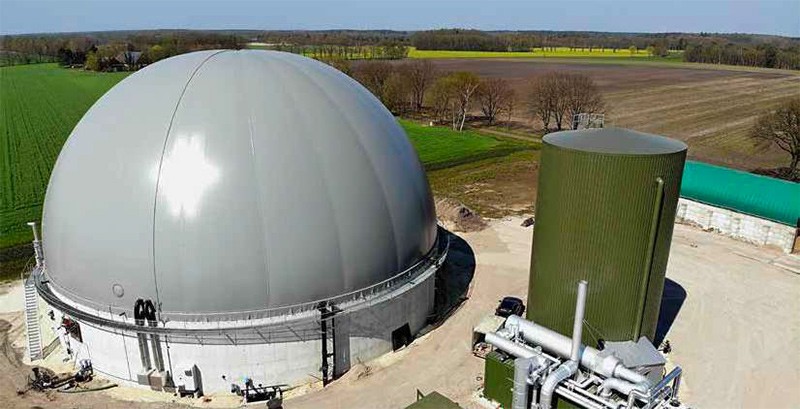Mannheim, June 23, 2020
By means of the biodiversity campaign week under the motto #blühendesleben (“blooming life”), the German Biogas Association intends to draw attention to the potential of biogas for the energy industry and the protection of insect and wildlife diversity. The campaign week runs from June 29 to July 3, 2020. As a member of the German Biogas Association, Caterpillar Energy Solutions advocates sustainable and eco-friendly energy supply and supports initiatives to protect biodiversity.

Promotion of Biodiversity and of Farmers
Biogas is a resource-saving, climate-friendly alternative to fossil fuels and is gained by digesting biological material in biogas plants. Almost all plant species can be used and digested in biogas plants. Even weeds that grow along with conventional crops can also be harvested. If duly applied, the use of herbicides can be reduced, allowing the soil to recover faster. The groundwater contamination, too, is reduced. Plants and herbs that are not suitable for food and feed production can also be utilized in biogas plants.
For many farmers, biogas plants are an important source of income. So far, farmers who grow wild plants and want to use them in biogas plants have not received any subsidies. The German Biogas Association advocates government support of farmers who grow wild plants.
Energy Generation with Biogas Delivers Positive Energy and Greenhouse Gas Balance
In biogas plants, the energy that can be produced from a hectare of plants is four to six times as much as the energy required for the digestion and cultivation. The positive carbon balance of biogas plants also provides an important contribution to climate protection. For example, a standard biogas plant with an output of 400 kW saves about 1,800 t of carbon compared to a fossil power plant of the same size. Additionally, digesting liquid manure in biogas plants instead of simply storing it prevents climate-wrecking methane from escaping into the atmosphere.
Wild Plant Cultivation Facilitates Operation
Local wild plants and herbs support the accumulation of humus and make the soil fertile. In this way, farmers can save a lot of time, e.g. for regularly fertilizing the soil. Especially on small fields and fields that are difficult to access, wild plants represent a viable alternative to conventional crops, such as biogas corn. The dry matter yield of wild plants is slightly lower than that of corn. Nevertheless, thanks to the working time and operating cost savings for diesel and herbicides, the mixtures are economically on par with conventional digestion substrates. Additionally, they support the diversity of insects, which are very important for agriculture. Thanks to their durability, wild plant mixtures are also resilient to changing weather conditions, heavy rain, or hail, which makes their cultivation attractive for farmers.” Once the plants have been sown and grown, I merely need to fertilize them once; there is no need whatsoever for herbicides or plowing”, says farmer Klaus Reichert. “The cultivation is much easier and creates new habitats for insects and wildlife.”

Economical and Efficient Energy Generation
Under its product brands Cat and MWM, Caterpillar Energy Solutions offers biogas-optimized gas engines, complete plants, and containers for combined heat and power (CHP) generation, which are also suitable for flexible operation. Biogas is a resource-saving, climate-friendly alternative to fossil fuels and is gained by digesting biological material in biogas plants. Cat and MWM cogeneration power plants (CHP plants) enable economic, efficient energy generation. The on-site plant transforms the employed energy into electrical energy and heat. The resulting exhaust heat can be reused directly and is not lost. Cogeneration power plants that produce power from biogas prevent the climate-damaging emissions released by fossil fuels.
Further information:
- German Biogas Association: Biodiversity Campaign Week (in German)
- Press release: Climate-Friendly Power and Heat Energy with MWM Gas Engines: Biogas Plants Continue to Be Key Factor in Carbon Reduction
- Power Plant Solution for Agricultural Biogas Plants
- NABU Baden-Württemberg: Wild Plants as a Supplement to Biogas Corn (in German)
